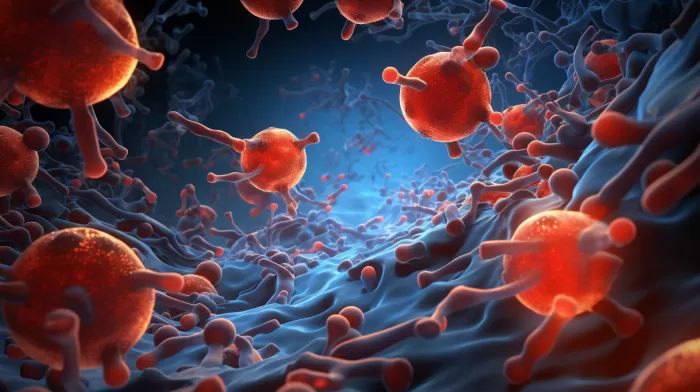Imagine going in for a blood test and receiving the great news that your high levels of HDL (good) cholesterol mean that your heart is well-protected. But what your doctor may not know is that this so-called good cholesterol can sometimes pose a threat to your health. In some cases, it can even be fatal.
Research at the Cleveland Clinic has shown that high-density lipoprotein (HDL) — commonly referred to as “good cholesterol” — can become dysfunctional, losing its heart-protective characteristics. Instead of aiding your heart, it can promote inflammation and hardening of the arteries, a disturbing fact your doctor might not be aware of. This can lead to the dangerous outcome of clogged arteries that cut off the blood supply to the heart.
The Risk of Dysfunctional HDL
The issue arises when good cholesterol becomes dysfunctional and starts behaving like LDL, the “bad cholesterol.” What happens is your HDL loses its antioxidant capabilities, which can cause inflammation and accumulate more cholesterol. This dysfunctional HDL can also encourage the production of arterial plaques, ultimately leading to hardened and narrowed arteries. When arteries harden or narrow, the blood flow to your heart becomes restricted, which can result in chest pain, heart attack, and other serious health issues.
The Impact on Heart Disease Patients
If you have heart disease and are taking medication to increase your HDL, this can be especially problematic. Studies have shown that these prescription drugs don’t necessarily make people with heart disease healthier — in fact, they can be counterproductive.
Researchers believe that the fact HDL can go “rogue” and harm arteries is a reason these pharmaceuticals designed to increase HDL levels don’t seem to improve the cardiovascular health of people with heart disease.
The Role of Apolipoprotein A1 (apoA1)
The trouble with HDL going “rogue” lies mostly with a protein called apolipoprotein A1 (apoA1). This protein is supposed to transport cholesterol to the liver to be eliminated. Under most circumstances, apoA1 makes HDL good for your heart and arteries. However, if you have atherosclerosis (hardening of the arteries), enzymes in the artery walls may oxidize the apoA1 in HDL, leading to further development of dangerous vessel blockages.
How to Maintain Healthy HDL Levels
So, what can you do to keep your good cholesterol from turning bad? Here are some steps you can take to maintain healthy HDL levels:
- Eat a healthy diet: Consuming a diet rich in fruits, vegetables, whole grains, lean protein sources, and healthy fats can help keep your cholesterol levels in check. Additionally, try to limit your intake of saturated fats, trans fats, and dietary cholesterol.
-
Exercise regularly: Engaging in regular physical activity can help raise HDL cholesterol levels and lower LDL cholesterol and triglyceride levels. Aim to get at least 150 minutes of moderate-intensity aerobic exercise or 75 minutes of vigorous-intensity aerobic exercise per week.
-
Maintain a healthy weight: Losing weight if you’re overweight or obese can help raise HDL cholesterol levels and lower LDL cholesterol and triglyceride levels.
-
Avoid smoking and limit alcohol consumption: Smoking can lower HDL cholesterol levels, while moderate alcohol consumption may help raise them. However, excessive alcohol consumption can have detrimental effects on your health, so drink in moderation.
-
Consider natural supplements: Some natural supplements have been shown to help raise HDL levels and improve overall cholesterol health. These include niacin, fish oil, and red yeast rice. Consult your doctor before starting any supplements, as they may interact with other medications or have potential side effects.
In conclusion, it’s essential to be aware that good cholesterol (HDL) can sometimes go rogue and cause harm to your arteries. To maintain a healthy heart and prevent the risk of heart disease, focus on a healthy diet, regular exercise, and maintaining a healthy weight. Educate yourself on the potential risks of prescription drugs designed to increase HDL levels, and discuss your concerns with your doctor. By taking these steps, you can help ensure that your good cholesterol stays truly good and keeps your heart safe from harm.



